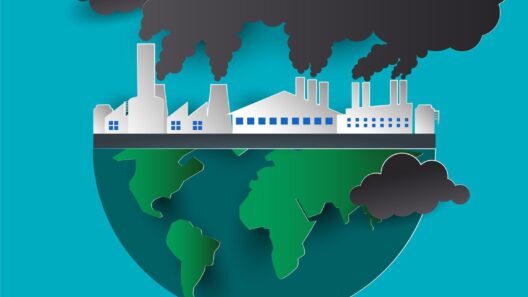What do Republicans think about climate change? This question spills out into conversations across the nation, as Americans grapple with societal shifts, extreme weather events, and emerging scientific consensus. It’s a pertinent inquiry ripe for exploration, especially as the party appears to be at a crossroads. Are they ready to embrace solutions that have long been sidelined, or is climate change still a topic better left untouched?
The landscape of Republican opinions on climate change is diverse and, at times, contradictory. Let’s take a closer look at the evolving views within the party and what they mean for the future.
Understanding a Party’s Stance: The Spectrum of Beliefs
When examining Republican thoughts on climate change, it is imperative to note the spectrum of beliefs nested within the party. While many Republican leaders have historically leaned toward climate skepticism, there is a growing faction advocating for proactive measures.
Some Republicans recognize the scientific data indicating the urgency of addressing climate change. They advocate for market-driven solutions, emphasizing innovation in renewable energy technologies rather than regulations that could stifle economic growth. This faction believes that harnessing entrepreneurial spirit can lead to effective and sustainable environmental practices. For example, they may champion tax incentives for businesses that invest in clean energy or showcase success stories from companies pioneering advancements in energy efficiency.
However, there remains a substantial contingent that argues against mainstream scientific consensus, attributing global temperature fluctuations to natural variability rather than anthropogenic influences. This group often highlights economic concerns, fearing that stringent environmental regulations could lead to job losses and economic downturns. Such viewpoints are amplified by media narratives that resonate with their base, fostering skepticism about the scientific community’s motives.
Paving the Way: Republican Voices for Climate Action
Interestingly, the Republican Party is witnessing an internal dialogue, prompting some influential figures to reconsider the party’s approach to climate change. Prominent politicians are beginning to advocate for environmental stewardship framed within a conservative ethos. They argue that protecting natural landscapes, conserving resources, and promoting clean air and water align with core Republican values.
An intriguing challenge emerges for the GOP: How can they reconcile their traditional principles with progressive environmental policies? The answer may lie in positioning climate action as an economic opportunity rather than a burden. By aligning environmental initiatives with job creation—especially in coal and oil-dependent communities—Republican leaders can craft a narrative that appeals to both their bases and the broader electorate.
Additionally, incorporating climate change into the party platform can attract younger voters increasingly concerned about environmental issues. By addressing their worries, Republicans might combat the perception that the party is out of touch with modern challenges. For instance, engaging in discussions about sustainable agriculture can resonate with rural constituents who depend on farming, thereby fostering a coalition of interest across various demographics.
Legislative Initiatives: The Path Forward for Republicans
As they navigate this evolving landscape, Republican lawmakers face the opportunity to champion legislation that reflects a commitment to addressing climate change. Initiatives such as promoting nuclear energy, enhancing public transportation, and investing in infrastructure resilient to natural disasters can profoundly impact both the environment and the economy.
Moreover, bipartisan efforts are cropping up around renewable energy sources. Solar and wind energy have gained traction among many Republicans who view these alternatives as economically viable solutions to reducing greenhouse gas emissions. By fostering public-private partnerships to incentivize renewable energy development, the party can shift narratives and demonstrate that climate action need not be at odds with economic vitality.
While the path forward is not without resistance, the potential for innovative policymaking could revitalize the Republican Party’s image and demonstrate leadership on a pressing global issue. Crafting a comprehensive energy strategy might empower them to garner support from a surprisingly broad spectrum of voters.
The Challenge of Leadership: Can the GOP Evolve?
As the climate crisis looms larger, one must ponder: Will the Republican Party seize this moment for transformation? The challenge lies not just in adopting a new narrative but in effectively communicating it to a skeptical base. For many, the concept of climate change can feel abstract, detached from their daily lives. Thus, leaders must demonstrate tangible benefits, ensuring constituents see value in embracing change.
The question also remains: Is the party willing to risk alienation from climate skeptics to foster a more progressive platform? Therein exists a significant test of political courage. Adopting a stance that prioritizes environmental sustainability could arguably affect electoral outcomes in key battlegrounds, especially among younger voters increasingly concerned about their future.
In conclusion, the Republican Party is at a juncture that could define its legacy. By engaging with environmental issues authentically and enacting substantive policies, it has the opportunity to reshape its identity. Acknowledging climate change not as a distant threat but as an imminent challenge could lead to innovative solutions that resonate across the political spectrum. Rather than shying away, the party might find that embracing environmental responsibility is indeed a pathway to renewed vigor and relevance in American politics.





